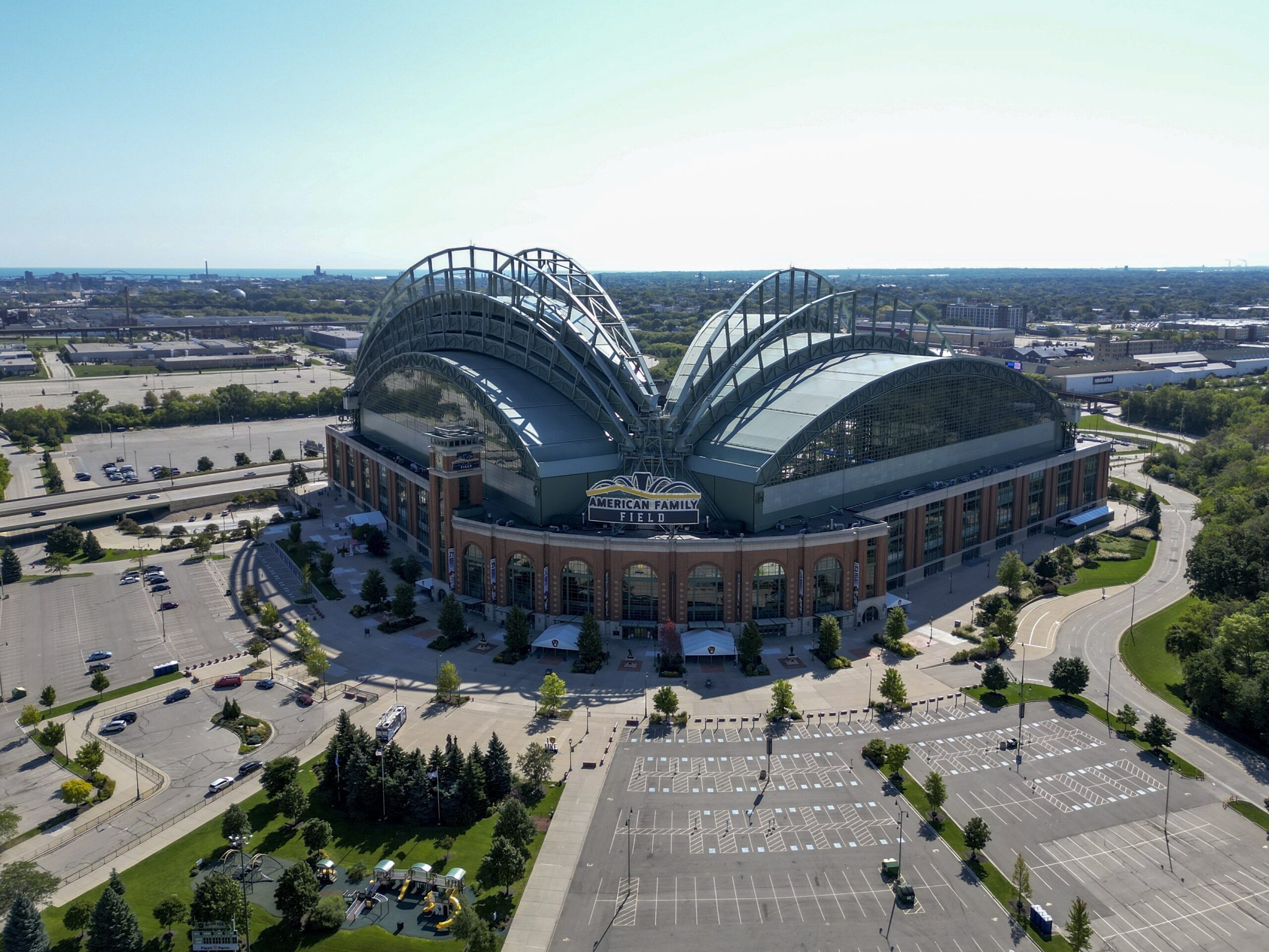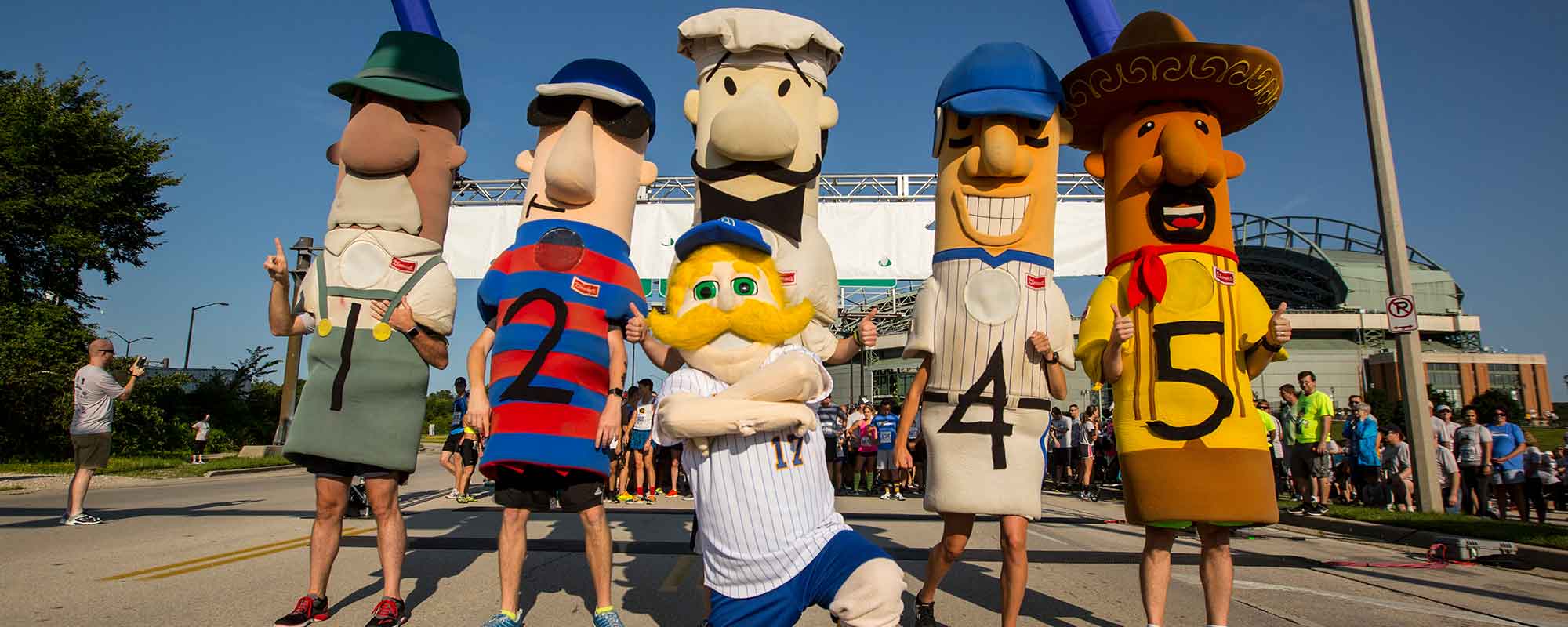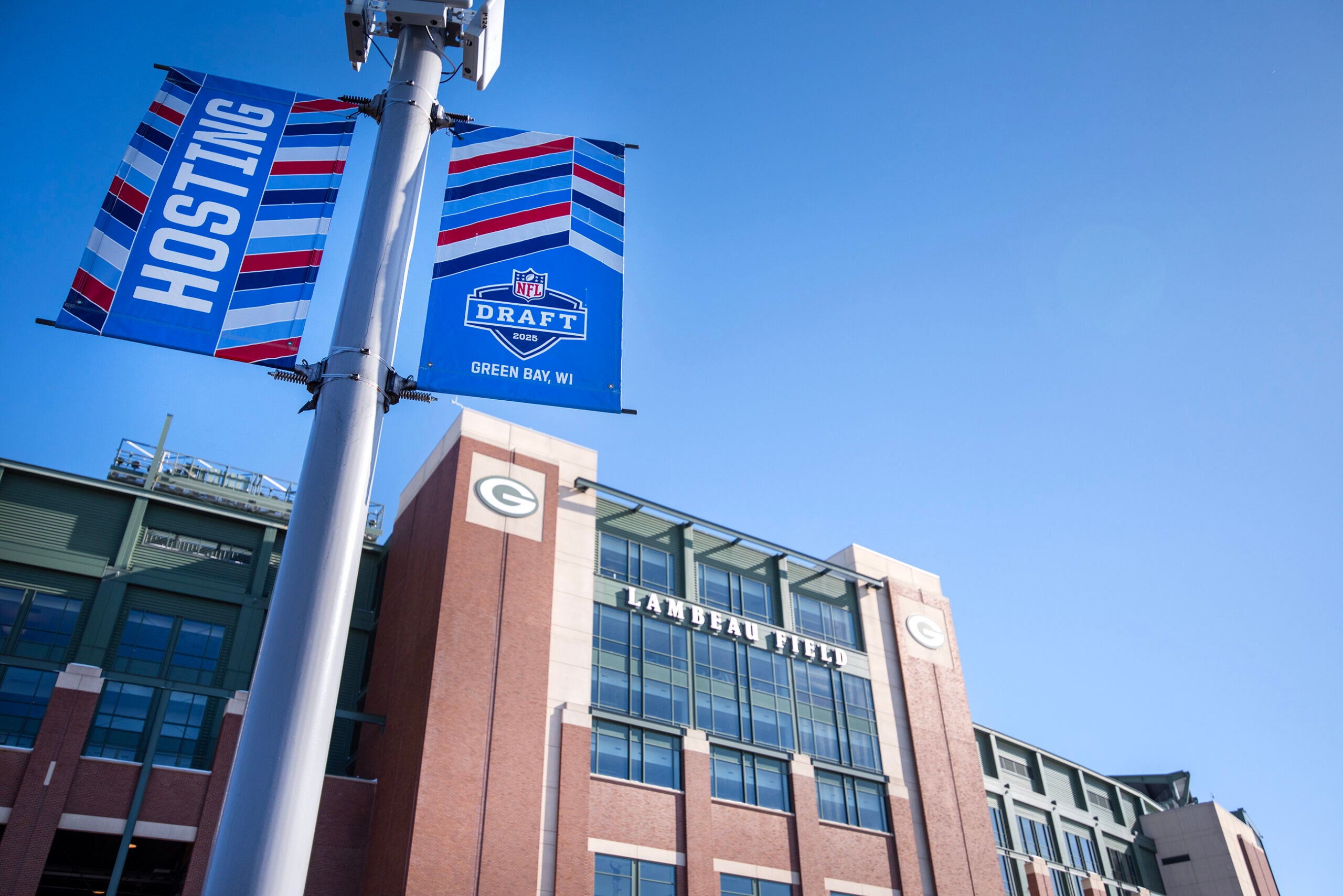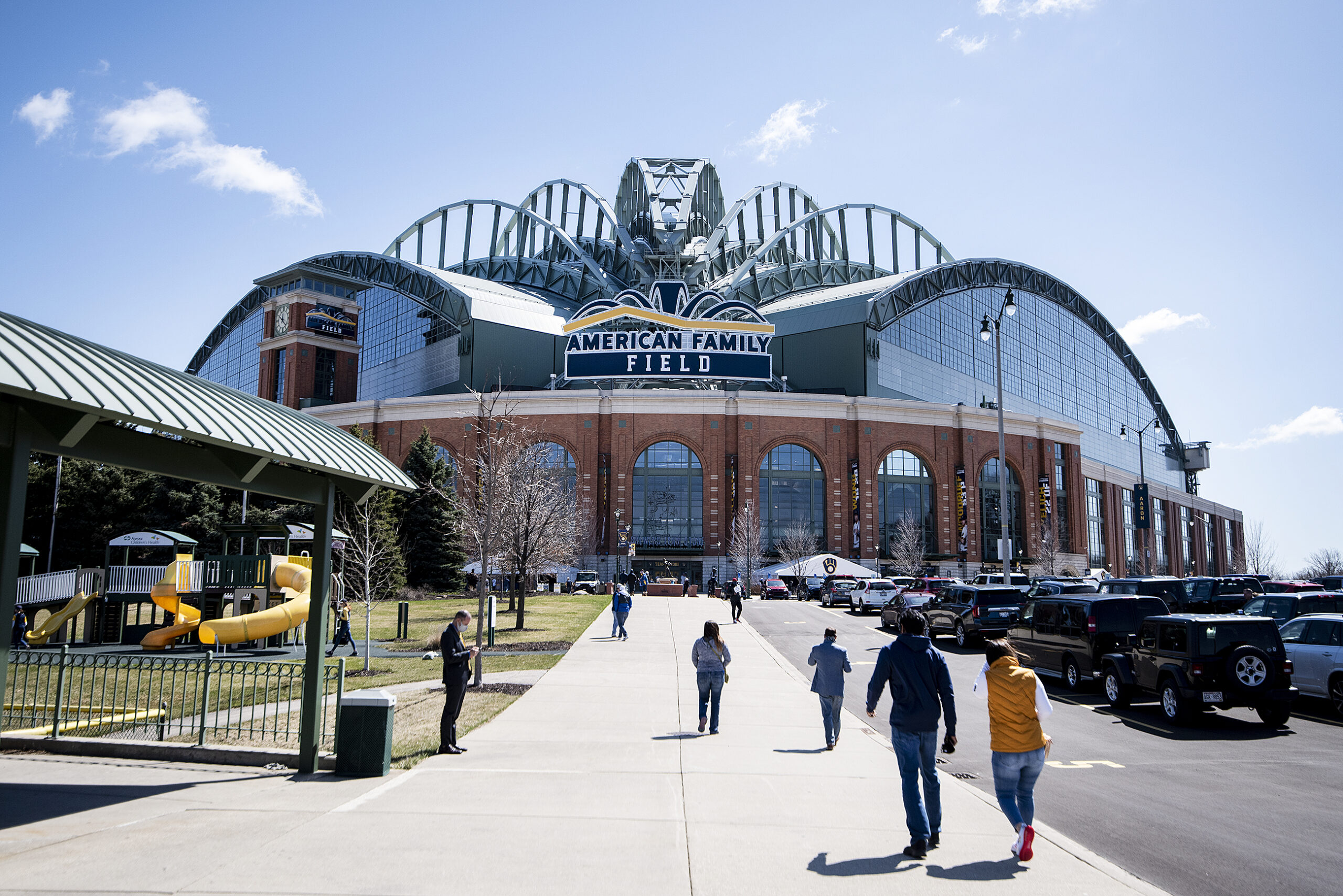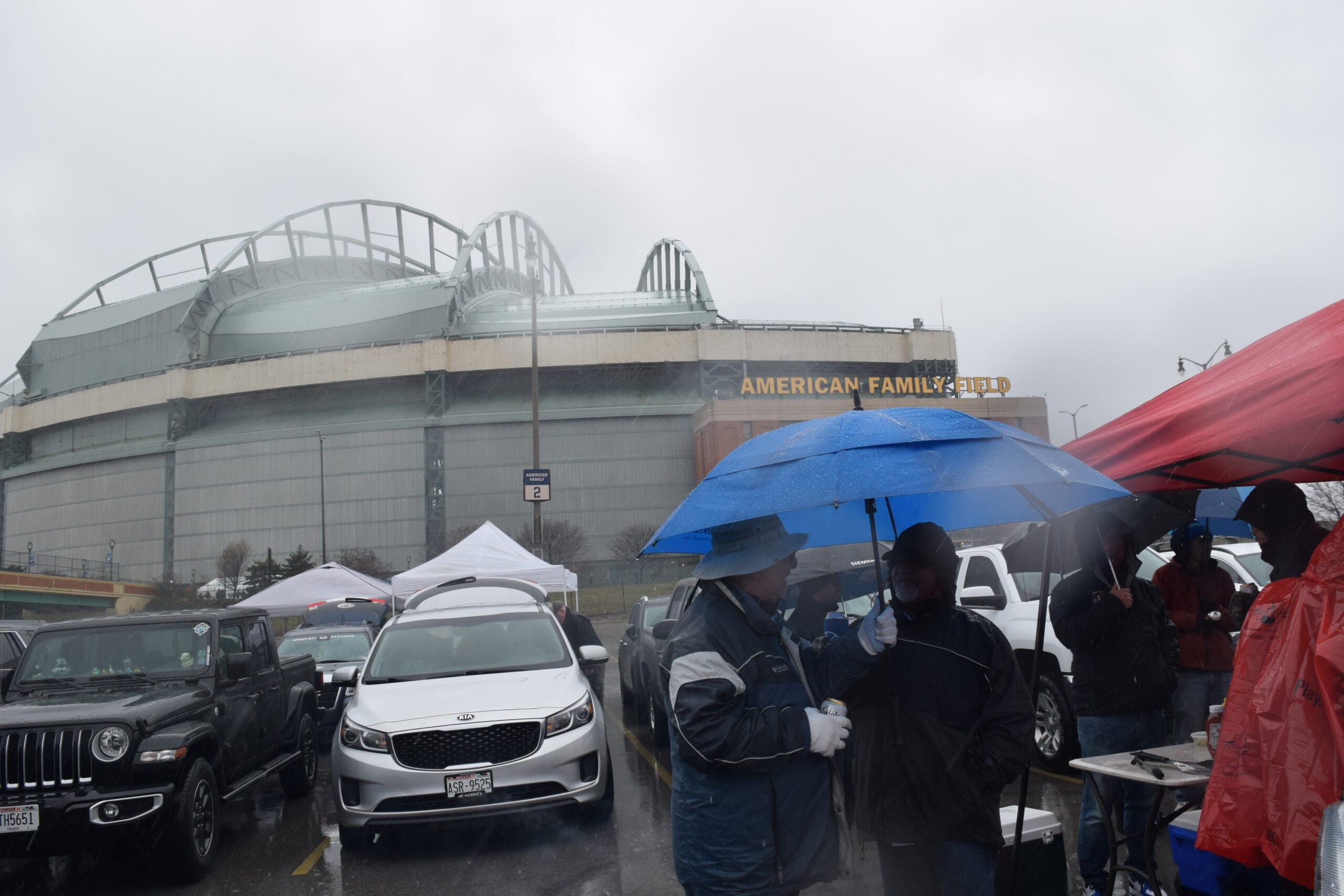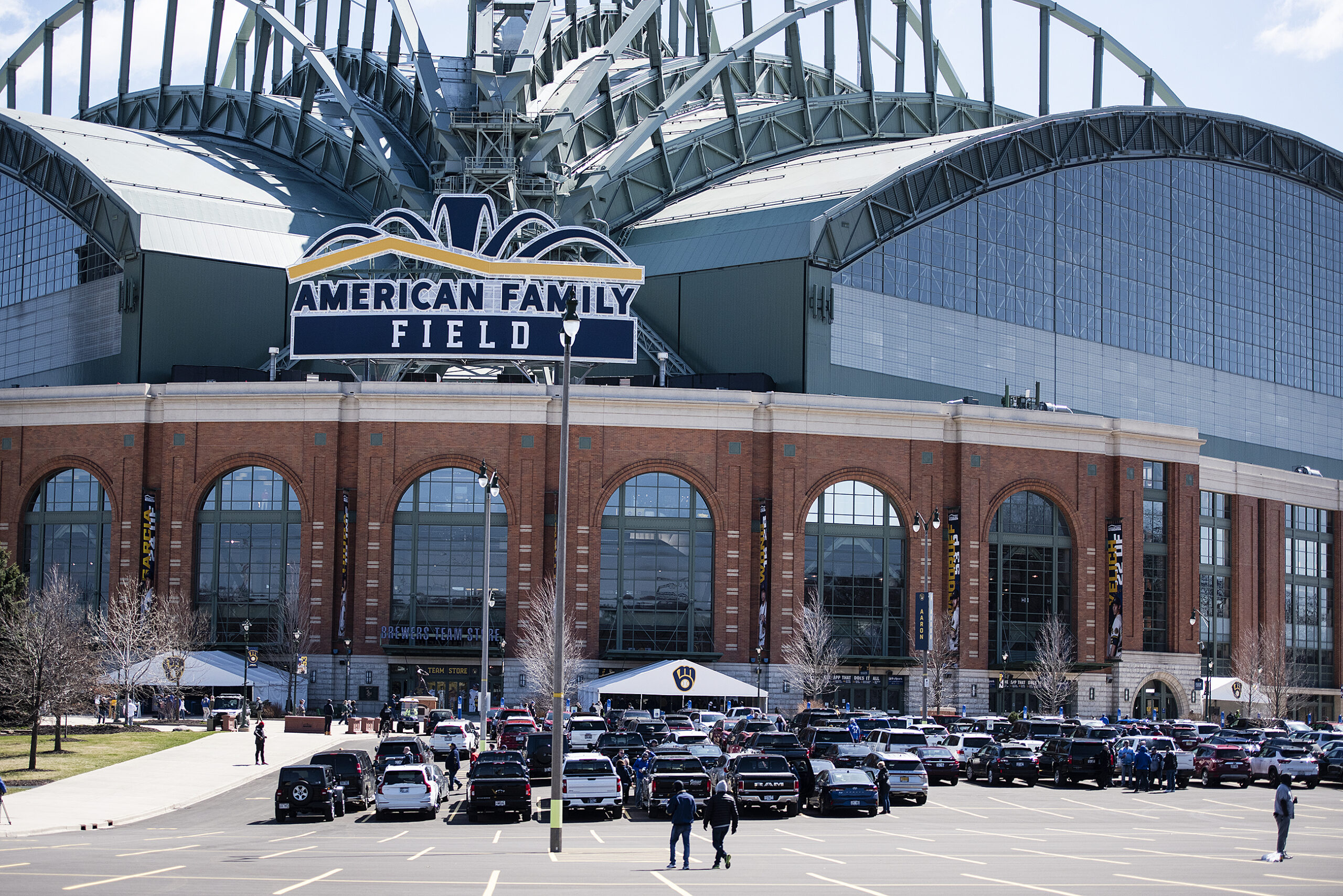Gov. Tony Evers signed a bipartisan bill Tuesday which includes over $500 million in public funds for upgrades to American Family Field, ensuring that the Milwaukee Brewers stay in the city until at least 2050.
The deal, which cleared both houses of the Legislature in November, comes after months of debate from state lawmakers about the amount of public money that would be funneled toward the stadium, and nearly a year after Evers announced his own proposal.
“Today is the culmination of months of bipartisan conversation, collaboration and hard work,” Evers said during a bill signing ceremony. “All in all, this plan ensures the Milwaukee Brewers will continue to call this city home for nearly 30 more years. It’s a meaningful demonstration of what we can accomplish when we decide to work together and do what’s best and what’s right for our state.”
Stay informed on the latest news
Sign up for WPR’s email newsletter.
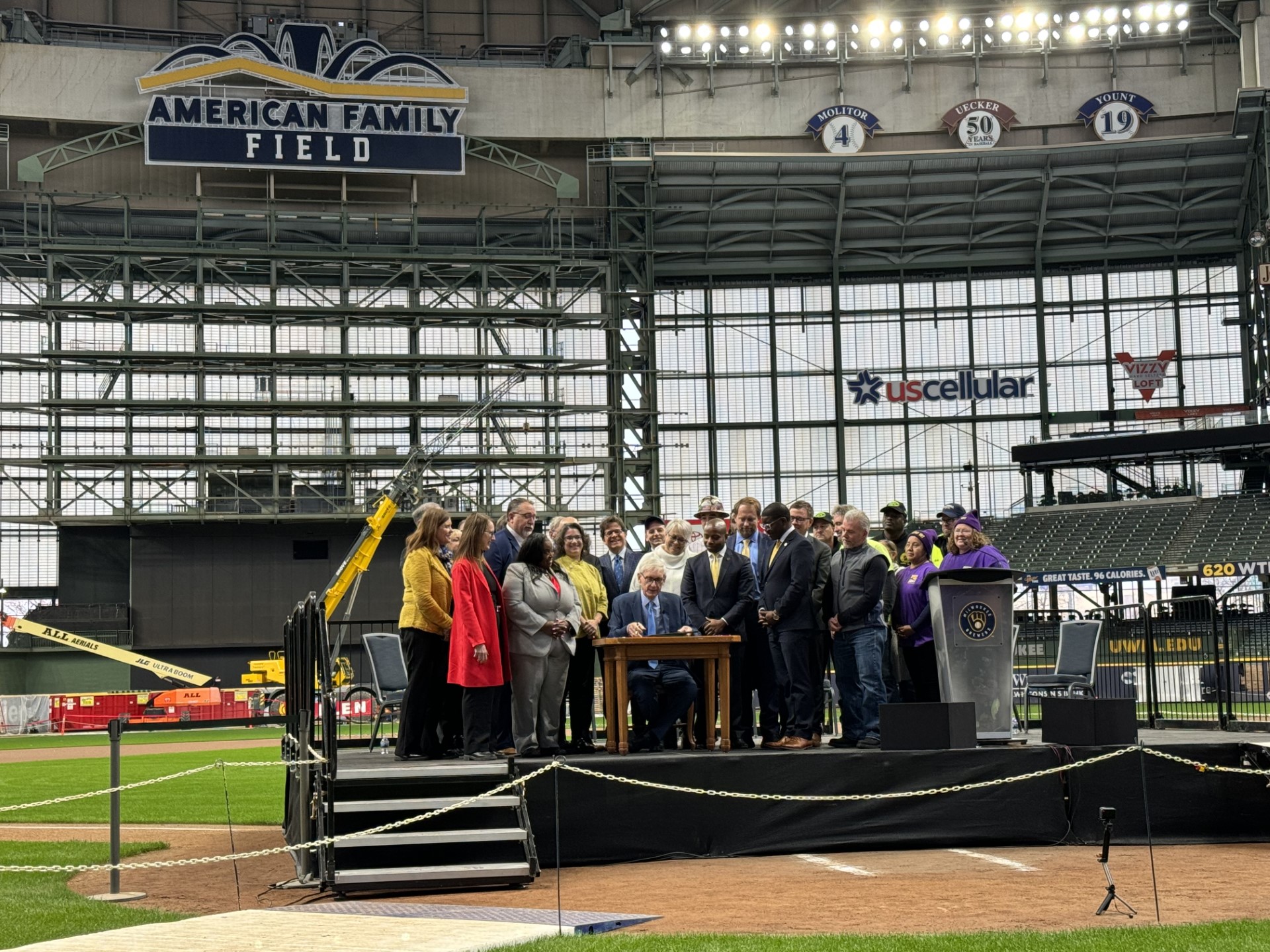
How the cost breaks down
The state will spend about $387 million under the plan, according to the latest summary by the Legislature’s nonpartisan budget office. That contribution could go down to $366 million, depending on how much is generated by a new ticket surcharge.
The city of Milwaukee and Milwaukee County will also pay a combined $135 million for the deal. That’s a reduction from earlier versions of the plan, which was adjusted after some local leaders worried the contribution from the communities would be too high for the cash-strapped city and county.
“I truly believe that the Brewers are a huge economic asset and a cultural asset right here in Southeastern Wisconsin … and across this state,” Milwaukee County Executive David Crowley said after the bill signing.
“No one wants to see how the sausage is made, but everyone wants to see the sausages run,” he jokingly added.
The team’s contribution to the deal will be about $110 million. Brewers owner Mark Attanasio said it was important for him to deliver the best fan experience possible when negotiating the deal.
“To all of us at the Brewers, our world-class ballpark is the bedrock and foundation for this fan experience. That is why today is such an important occasion for all of us,” Attanasio said.
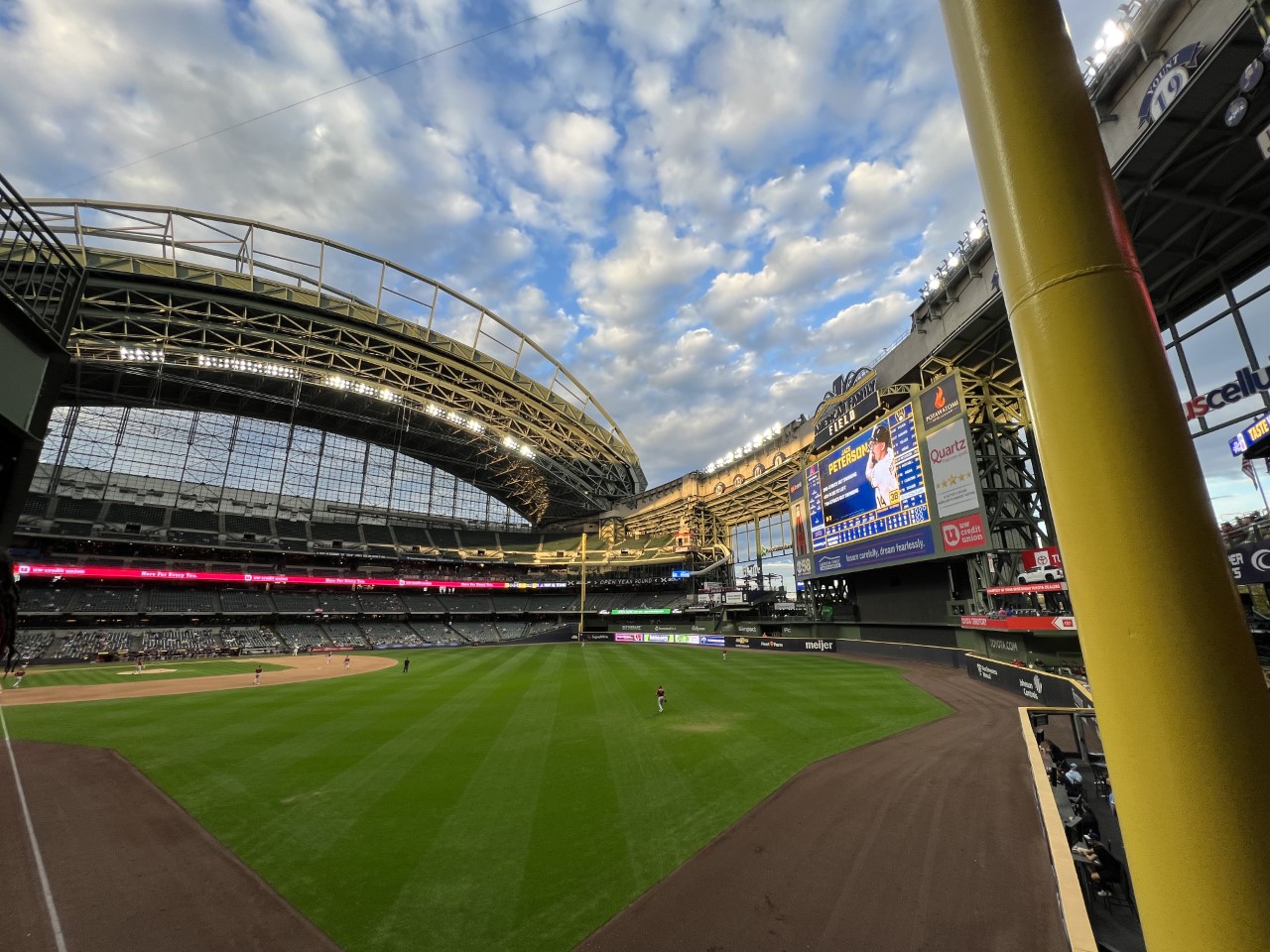
What’s included in the new law
Republican senators amended the Brewers plan as they worked to secure a bipartisan agreement, spelling out details for a new ticket surcharge and expanding a newly-created stadium district board.
The ticket surcharge, which will cover non-Brewers events like concerts, will start at $2 in 2024 and step its way up to $4 by 2042 for most tickets. For luxury boxes, the surcharge will start at $8 and work its way up to $10 by 2042.
The stadium district board will now be increased to 13 members under the law, up from nine in a previous version of the bill. Seven of those members — a majority — will be appointed by the governor and not subject to confirmation by the state Senate. The district is charged with the oversight and monitoring of the operations and maintenance of American Family Field, including the trademark retractable roof and the stadium’s scoreboard.
Part of the law also includes winterizing the stadium, so it can be used for events in colder months. Brewers president of business operations Rick Schlesinger said that work will begin after the end of the next season.
“We’re looking forward to hosting a lot of different events here in the winter … driving revenue to the state in the form of sales taxes, creating jobs and creating fun and excitement for our fans in the offseason,” Schlesinger said.
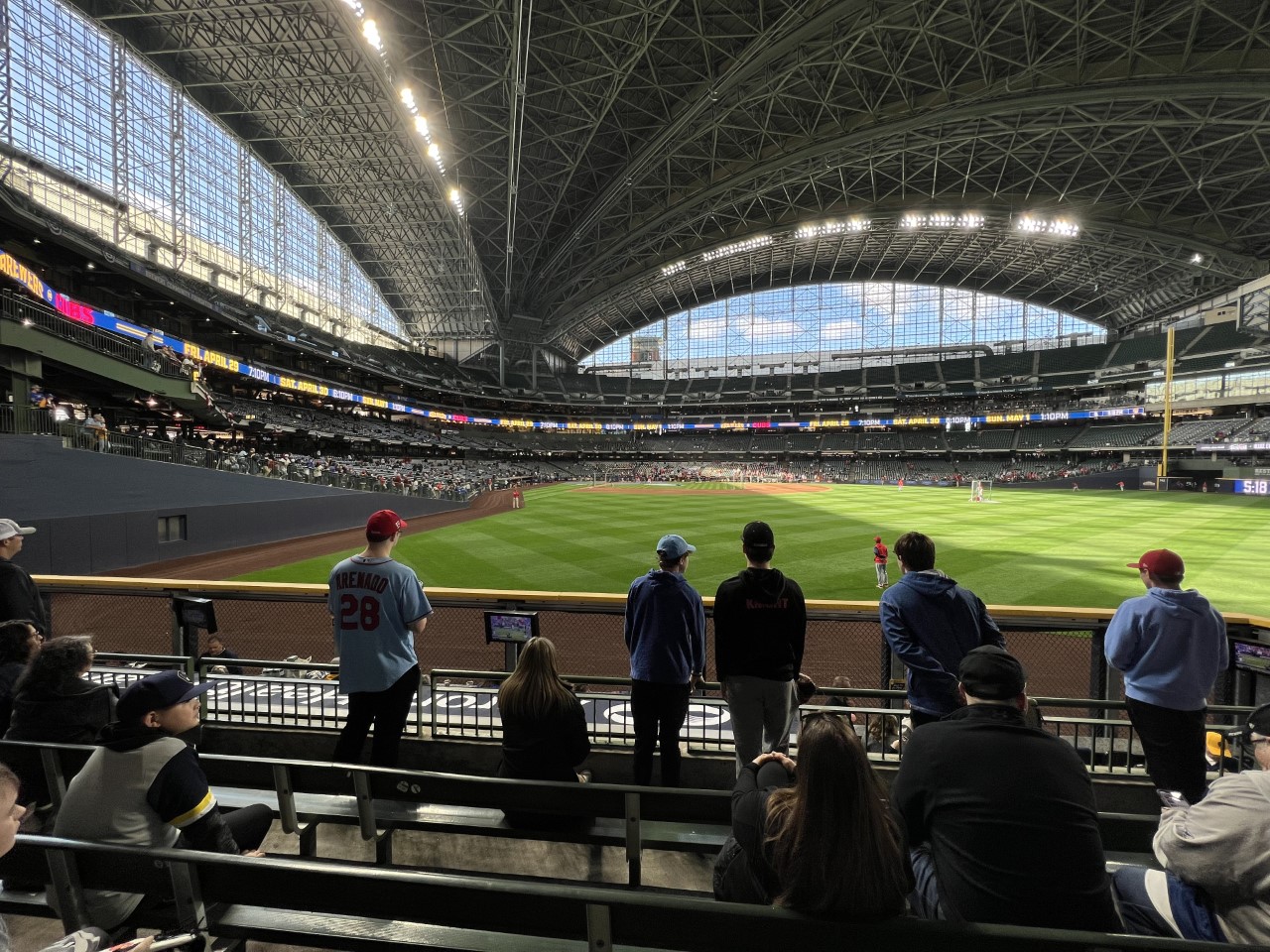
Schlesinger said a new scoreboard will also be installed before the start of the upcoming season.
“A lot of the work that’s being done in the off-season, besides the scoreboard, is the back of the house infrastructure, the things like freezers and chillers, upgrading some of the broadcast infrastructure, things the fans won’t see but obviously are critical to the integral working of this ballpark,” he said.
Future maintenance will likely also include repairs to the stadium’s roof.
An amendment in the final version of the bill calls for a study to research the “feasibility of, and options for, the redevelopment of baseball park facilities of the district other than a baseball stadium.” That’s something local officials and leaders have been pushing for in recent years.
“The redevelopment report shall contain a recommendation supporting or opposing a potential payment in lieu of general property taxes for any development of the baseball park facilities of the district other than a baseball stadium,” the bill said.
Evers said he believes developing the area around the stadium “has to be considered.”
“I support them (Brewers) looking at it, I can’t make a judgment as to what that would look like if it did work or didn’t work,” Evers said.
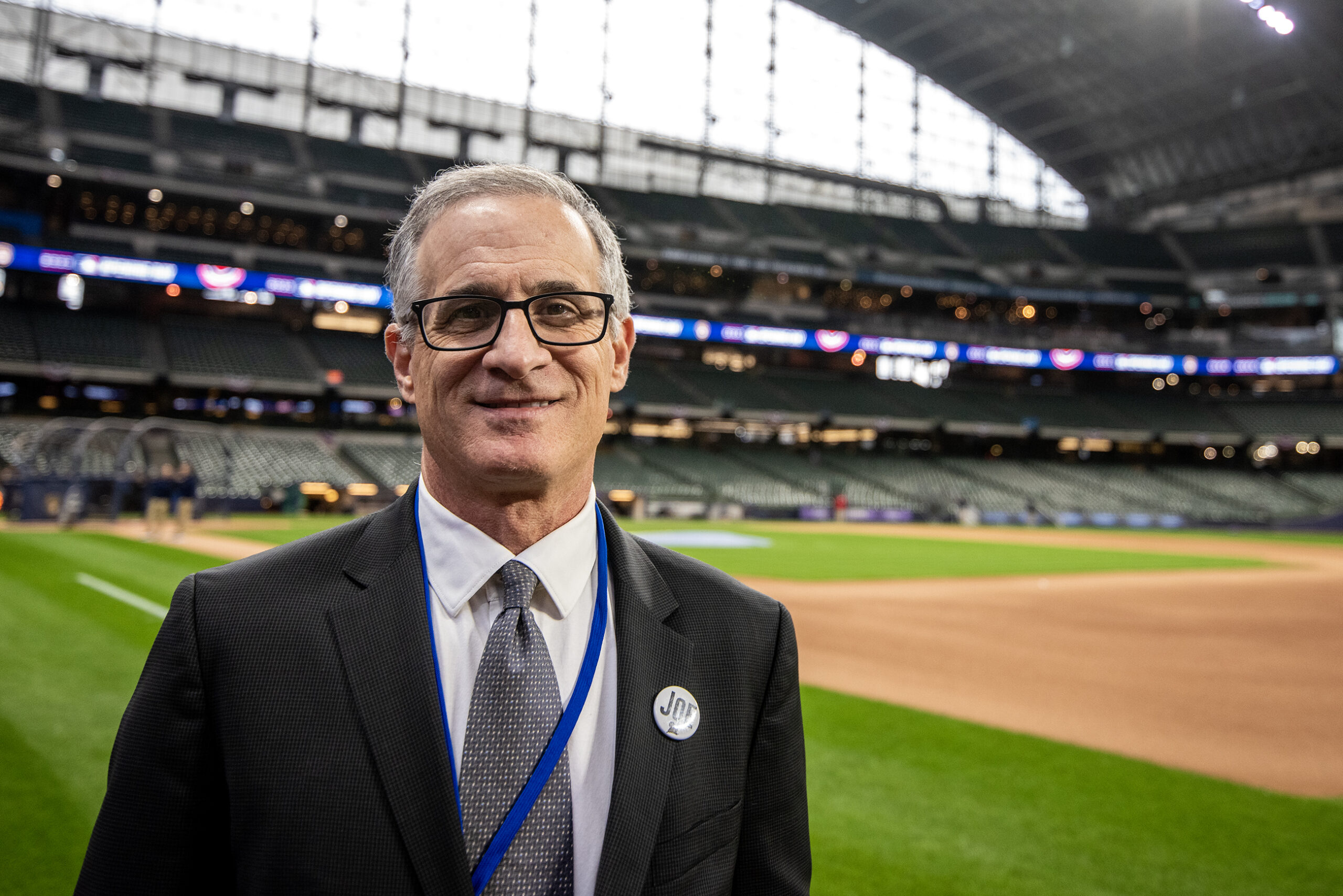
The 1995 Brewers deal to build Miller Park authorized government bonding, or borrowing, to pay for construction of the stadium. Borrowing for the project totaled more than $259 million, according to a 2019 memo from the nonpartisan Legislative Fiscal Bureau. Taxpayers in Milwaukee, Ozaukee, Washington, Waukesha and Racine counties paid an extra 0.1 percent sales tax to retire that debt and the associated interest. Evers signed a law in 2019 requiring the local sales tax to expire in 2020.
A 2020 report from Conventions, Sports and Leisure International found the Brewers paid about $106.8 million in upgrades to maintain the stadium since its creation. They’ve also paid about $20 million in rent to the stadium district since 2001. That report also found that from 2001 to 2019, the stadium created $2.5 billion in total output for the state, including $1.6 billion in direct spending and $263 in new taxes.
The team is valued at $1.6 billon, according to Forbes. Despite having one of the smallest markets, the Brewers ranked 15 out of 30 Major League Baseball teams in attendance last season, averaging just over 31,000 fans per game.
Wisconsin Public Radio, © Copyright 2025, Board of Regents of the University of Wisconsin System and Wisconsin Educational Communications Board.
